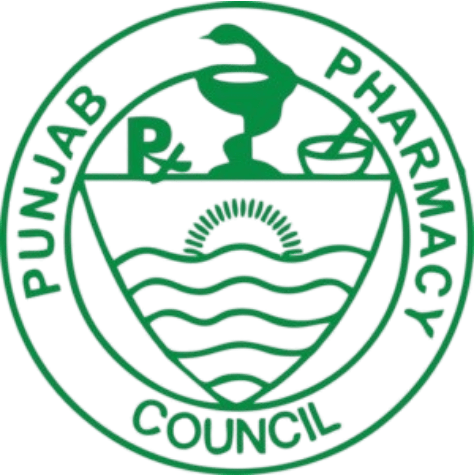The Punjab Pharmacy Council Lahore (PPC) is a pivotal body that plays a crucial role in regulating the pharmacy profession in Punjab. It was established under the Pharmacy Act of 1967. And functions as an autonomous entity to make sure that pharmacists and pharmacy technicians maintain the highest standards of education and professional conduct.

The council’s work is essential for safeguarding public health by controlling the quality of pharmaceutical services and combating unethical practices, such as quackery. By overseeing everything from educational standards to professional registration, the PPC serves as the backbone of the pharmacy sector in Punjab.
Historical Context and Establishment
The need for a regulatory body to govern the pharmacy profession in the region became apparent in the mid-20th century. Prior to the enactment of the Pharmacy Act, 1967, there were no formal restrictions on who could practice pharmacy. Leading to widespread malpractice and a lack of standardized care. This posed a significant risk to public health, as individuals without proper training were compounding, mixing, and dispensing medicines.
To address this critical issue, the government of Pakistan passed the Pharmacy Act, 1967. It led to the formation of the Pakistan Pharmacy Council at the national level and provincial councils. The PPC was officially constituted to implement the provisions of this act within the province of Punjab.
Its establishment was a landmark step, introducing a framework for the formal education, training, and registration of pharmacists. This move was crucial for elevating the profession from an unregulated trade to a respected healthcare discipline.
Core Functions and Responsibilities
The primary functions of the Punjab Pharmacy Council Lahore are multifaceted, all centered on regulating and improving the pharmacy profession. These functions, as outlined in the Pharmacy Act, are vital for maintaining a competent and ethical workforce. Some of its key responsibilities include:
- Registration and Licensing: The PPC is responsible for registering and issuing licenses to qualified pharmacists. It maintains different registers for various categories of professionals:
- Register-A is for pharmacists who hold a Doctor of Pharmacy (Pharm-D) degree or an equivalent qualification from an institution recognized by the council.
- Register-B is for pharmacy technicians and assistants who have completed the necessary training and passed the required examinations conducted by the council.
- Register-C is for pharmacy apprentices, although this is a less common registration type today.
- Setting Educational Standards: A major part of the PPC’s role is to ensure that pharmacy education in Punjab meets a high standard. It inspects and approves pharmacy colleges and universities, ensuring their curricula, faculty, and facilities align with the council’s criteria.
- Conducting Examinations: The council conducts examinations for pharmacy technicians and assistants for their registration in Register-B. These exams assess their knowledge and competence, to find out whether they possess the fundamental skills required to work in a pharmacy setting.
- Enforcing Professional Conduct: The PPC is empowered to take disciplinary action against pharmacists and technicians who violate the code of ethics or engage in professional misconduct. This includes suspending or revoking licenses.
- Regulating the Practice of Pharmacy: The council also works to enforce regulations related to the practice of pharmacy, including the dispensing of medicines and the operation of pharmacies. It collaborates with other healthcare bodies, such as the Drug Regulatory Authority of Pakistan (DRAP), to ensure compliance with drug laws and safety protocols.
Registration Process
For pharmacists and pharmacy technicians, registration with the PPC is a mandatory and critical step toward a professional career. The process is rigorous and requires the submission of various documents and compliance with specific requirements.
For a pharmacist seeking to be registered on Register-A, the typical requirements include:
- An application form.
- An attested copy of the Pharm-D degree and academic transcripts.
- A copy of the National Identity Card (CNIC).
- Passport-sized photographs.
- An affidavit affirming the authenticity of the provided information and a commitment to professional conduct.
- Payment of the prescribed registration fee.
Similarly, for a pharmacy technician seeking registration on Register-B, the process involves:
- An application form.
- An enrollment certificate from an approved institution.
- Proof of passing the council’s examination.
- Copies of academic certificates (e.g., Matric and FSC).
- An affidavit and photographs.
- Payment of the registration fee.
The PPC also provides services for the renewal of registrations, issuance of duplicate certificates in case of loss or damage and the provision of “Good Standing” certificates for pharmacists who wish to practice abroad.
Challenges and Opportunities
The Punjab Pharmacy Council Lahore has made significant strides in standardizing pharmacy practice in the province, but it continues to face challenges. The fight against quackery remains an ongoing battle, requiring continuous collaboration with law enforcement and public awareness campaigns. Furthermore, with the rapid advancements in medical science and the increasing complexity of pharmaceutical care, the council needs to continuously update its educational standards and professional guidelines.
As the healthcare landscape evolves, the PPC has an opportunity to play an even greater role in public health. Its commitment to upholding the highest standards of the pharmacy profession is vital so that the people of Punjab have access to safe and quality pharmaceutical care.



